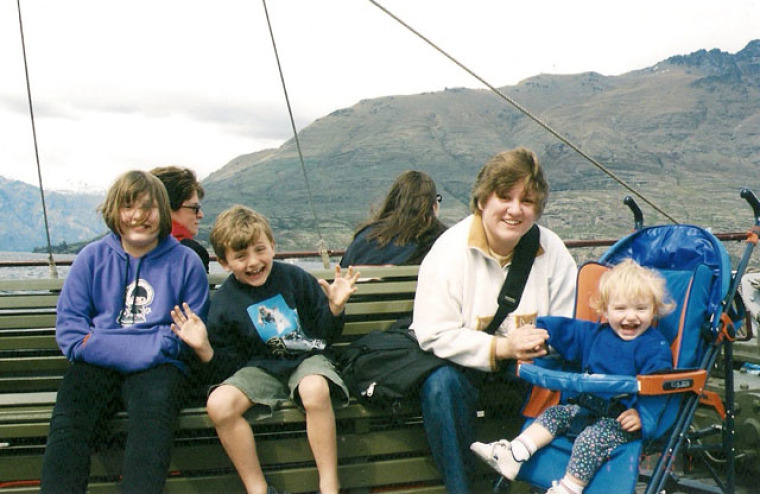
As a teenager, I had a short-lived and highly unsuccessful babysitting career. One memorable fail was when I decided to wake a sleeping baby for a cuddle. I poked and prodded through its wooden cot bars until the poor baby stirred. Then it cried. Loudly and endlessly.
With zero child-settling skills to draw on, I made a frantic phone call to Mum. And vowed never to babysit again.
When motherhood was on the horizon, I read as many books and watched as many TV shows as I could. Of course, nothing can prepare us for the reality of becoming a parent. We’re always going to feel like we’ve been thrown in the deep end.
The highs and lows
I cherish so many joyous memories of my three children’s early years. I loved bathing them when they were little, then wrapping them in warm onesies and breathing in that delicious after-bath smell as they gently snoozed in my arms. How precious to snuggle alongside them for book-reading at the close of each day. And what a privilege to introduce them to Jesus and help them recognise God’s loving care in their everyday lives.
But I also remember some low points.
A tough time came just a few weeks after becoming parents. Our daughter wouldn’t sleep for more than 20 minutes unless tightly swaddled—a solution we didn’t discover until after an excruciatingly stressful three days.
Sleep deprived and increasingly desperate, we faced the real possibility that we might harm our daughter. My husband went out and bought a baby rocker, so we could take a hands-off approach for an hour or so. She stayed safe in her rocker as we resisted the scary temptation to shake her, able to cool off before we faced the fray again.
Inferred, not taught
I occasionally joke with our kids that they can pay for their own counselling in later life. What I mean is that although my husband and I have done our best, we are only human, so there will have been some less-than-useful parenting in their upbringing. And they’ll need to work through that, just as we’ve had to work through some of the unintentional impacts of our own parents’ influence.
My children will have picked up ways of doing life from us that won’t serve them well. Some will have come from what they’ve inferred as they’ve joined the dots of what they’ve seen and heard, rather than from some instruction we’ve intentionally given.
One of the things I inferred from my own parents (my father, in particular) is the unreasonable belief that imperfection is not acceptable. Dad never told me I had to be perfect, but because he seemed so in control and self-sufficient, my childlike thinking said this is what being adult had to look like. I wrongly inferred a lesson Dad never meant to teach me.
I’ve spent over 20 years unlearning that lesson. On a good day, I get it. But sometimes I regress.
Honouring our parents
Ephesians 6:2-3 says, ‘Honour your father and mother’—which is the first commandment with a promise—‘so that it may go well with you and that you may enjoy long life on the earth.’
While at primary school, I decided to write down the dumb things my parents had done to ensure I didn’t repeat their mistakes. Those childish scribbling are long gone. I think there were some things about not telling my kids off without listening to them first. And probably there was something about them deserving lots of pocket money.
More recently, I’ve come to realise that one of the ways I honour my parents is to forgive them for their failings—real and imagined. And to focus more closely and thankfully on their love.
There is no dress rehearsal for life, so all of us need to make peace with our missteps. That means forgiving ourselves for our failings and accepting our imperfections. It also means letting go of those ways of living that are not serving us well. Even when we’ve picked these up from people we love.


Christina Tyson has been a Salvation Army officer (minister) for almost 30 years. For 16 years she was involved in Salvation Army communications, but now works to support local churches and recruit future leaders. Recently she also took on an additional role as The Salvation Army’s Response Officer for the New Zealand Royal Commission into Abuse in Care. Christina and her husband Keith live in Wellington, New Zealand, and have three adult children.